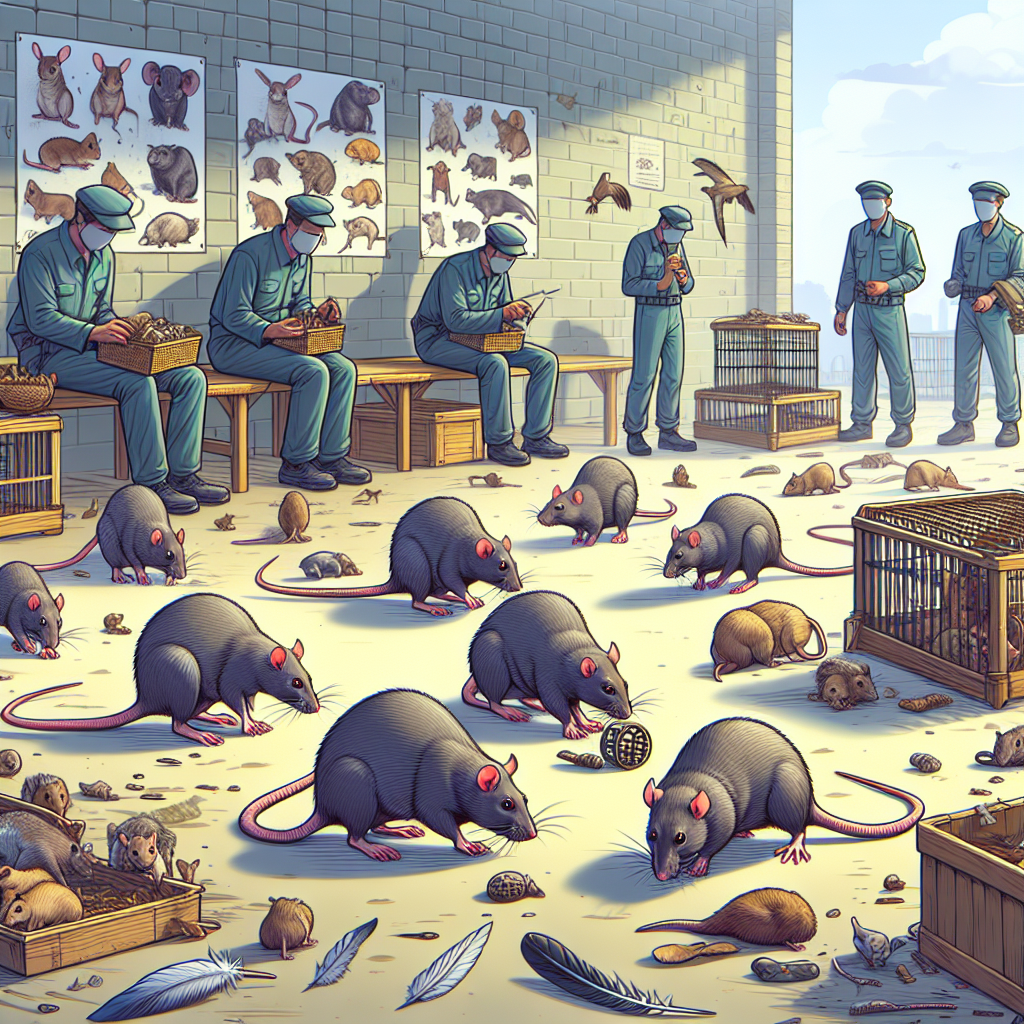Giant African Rats Take on Illegal Wildlife Trade: A Uniquely Effective Approach
In an innovative twist on wildlife conservation efforts, a recent study by the nonprofit organization APOPO highlights the potential for giant African rats to combat illegal wildlife trafficking. These remarkable creatures, weighing between 1.5 to 2 kg and dramatically larger than the common brown rat, may provide a new strategy in the fight against the multibillion-dollar criminal economy tied to illegal wildlife trade.
Commonly referred to as "hero rats," these rodents have previously been trained to detect land mines and tuberculosis, showcasing their impressive olfactory abilities. Now, according to the findings published last month, researchers believe these trained rats can be taught to identify illicit wildlife products, such as elephant ivory, rhino horn, and pangolin scales.
Conducted from December 2017 to December 2021 in Morogoro, Tanzania, the study demonstrated that the giant rats successfully detected these wildlife products even when mixed with non-target items. The authors of the study suggest that using scent-detection animals could be a more effective approach to uncovering wildlife trafficking, given that animals can better differentiate between organic materials and are less vulnerable to visual disguises used by traffickers.
Traditional methods for screening shipping containers, which include costly X-ray scans and trained service dogs, come with hefty price tags—ranging from $30,000 to $1.2 million for machines, and up to $30,000 for a dog. In contrast, training a detection rat costs approximately $8,000, making this method more accessible and sustainable for conservation efforts.
Besides their cost-effectiveness, the lightweight nature of these rats allows them to access areas that dogs cannot, such as the ventilation systems of shipping containers, showcasing their versatility as detection agents. "They can go where dogs cannot," noted Isabelle Szott, a senior research scientist involved in the study.
Despite the promising results, the study emphasized that further research is necessary to evaluate the practical deployment of these rats in the field. Researchers will need to create custom-made vests for the rats that contain a beeping device for alerts, an adjustment aimed at optimizing their role in detecting endangered wildlife products.
The illegal wildlife trade is alarming in scale, ranked as the fourth largest transnational crime economy globally, worth between $7 to $23 billion. This illicit market is not only linked to serious offenses like money laundering and drug trafficking but also contributes to the spread of zoonotic diseases, such as the recent coronavirus pandemic, by promoting unregulated cross-country trafficking of species.
As we contemplate the broader implications of this study, it reminds us of our stewardship responsibilities rooted in biblical teachings. Proverbs 12:10 states, "The righteous care for the needs of their animals." This principle invites us to consider how efforts to protect endangered wildlife align with a commitment to justice and care for God’s creation.
In closing, as we reflect on this innovative approach to wildlife protection through the eyes of biblical stewardship, let us be encouraged to think creatively about how we can address the challenges of our world today. Each small action towards conservation embodies a greater spiritual lesson about our collective responsibility to nurture and protect the gifts of creation. How might we contribute to the welfare of the earth and its creatures, acting as responsible caretakers in the spirit of compassion and justice?
Explore and dig up answers yourself with our BGodInspired Bible Tools! Be careful – each interaction is like a new treasure hunt… you can get lost for hours 🙂


